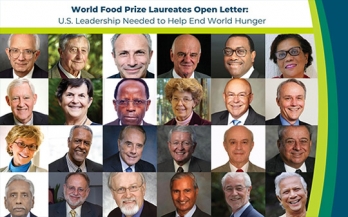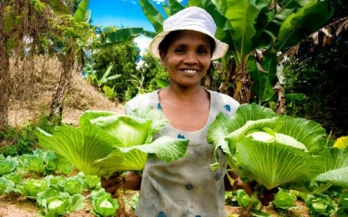24 World Food Prize Laureates from across the globe, dedicated to driving change in food systems, are calling on the leadership of the United States Administration to help end world hunger. The World Food Prize Laureates submitted an open letter to the President of the United States of America, Joseph R. Biden Jr., calling on the new Biden-Harris administration to help achieve the global goals on food.
The Governments of Canada and Bangladesh, in partnership with the Government of Japan, today hosted a virtual launch of the Nutrition for Growth Year of Action, setting in motion a year-long effort to address a global hunger and nutrition crisis that has been exacerbated by the COVID-19 pandemic.
In a time of many seemingly insurmountable challenges, there is something that we can fix. One thing, which if changed could simultaneously accelerate the end of hunger, ensure everyone has access to a healthy diet, dramatically reduce greenhouse gas emissions, reverse biodiversity loss, and make societies and economies more equitable and resistant to devastating pandemics such as COVID-19.
Today, the World Food Programme (WFP) was awarded the Nobel Peace Prize for its efforts to combat a surge in global hunger amid the coronavirus pandemic. To congratulate on the award, Lawrence Haddad, GAIN Executive Director, sent the following message to David Beasley, Executive Director of the World Food Programme.
The COVID-19 crisis has demonstrated that humanity is placing too much pressure on the natural world and has laid bare profound inequalities in societies. Deforestation, wildlife trade and conversion of land for highly intensive and unsustainable agriculture and livestock production, are destroying ecosystems and increasing interactions between wildlife and humans, opening the door to infectious disease outbreaks.
New estimates show that the COVID-19 pandemic will lead to widespread increases in malnutrition due to disruptions in food, health and social protection systems. Lockdown measures are disrupting the production, transportation, and sale of nutritious, fresh and affordable foods, forcing millions of families to rely on nutrient-poor alternatives.






